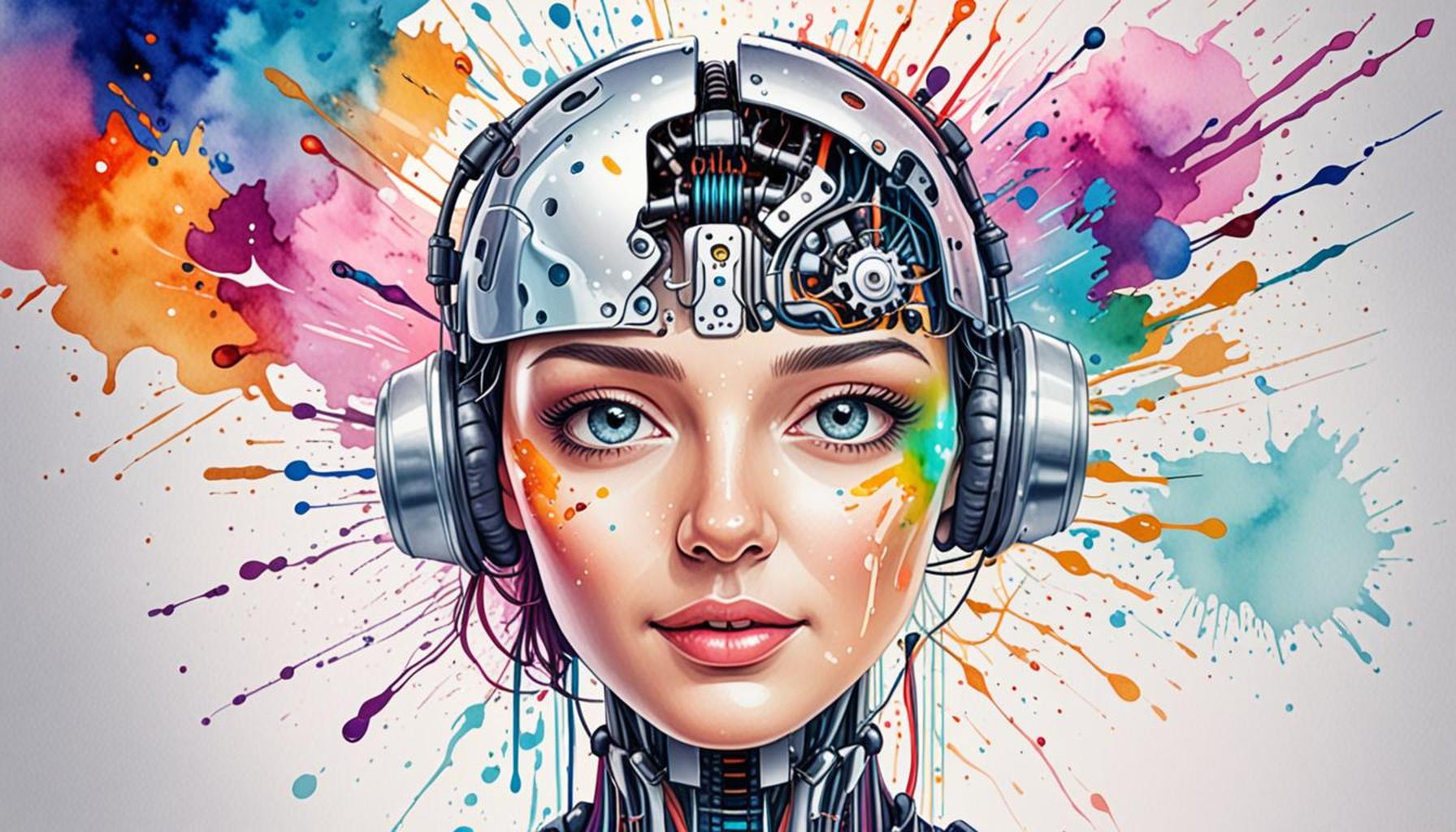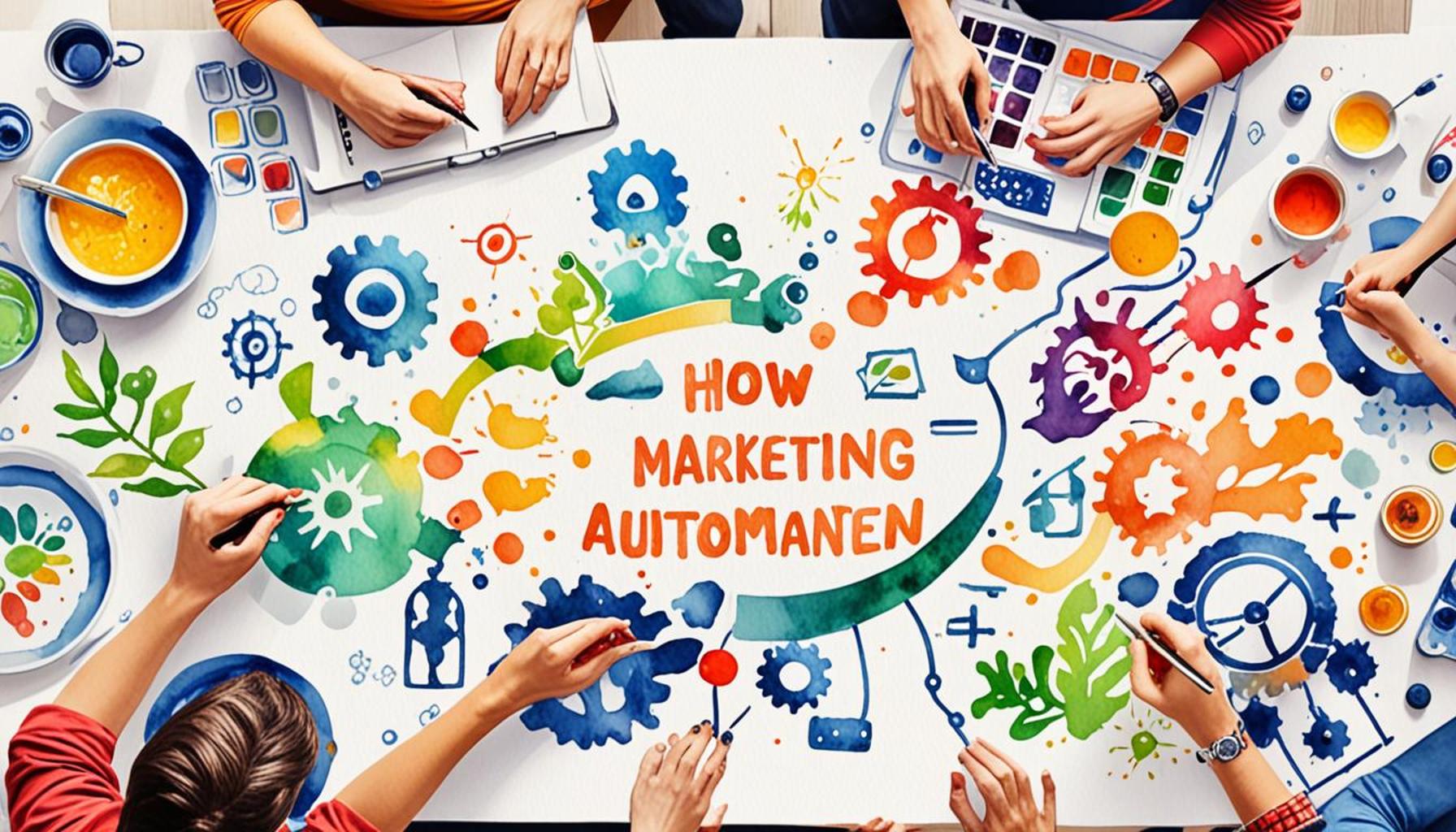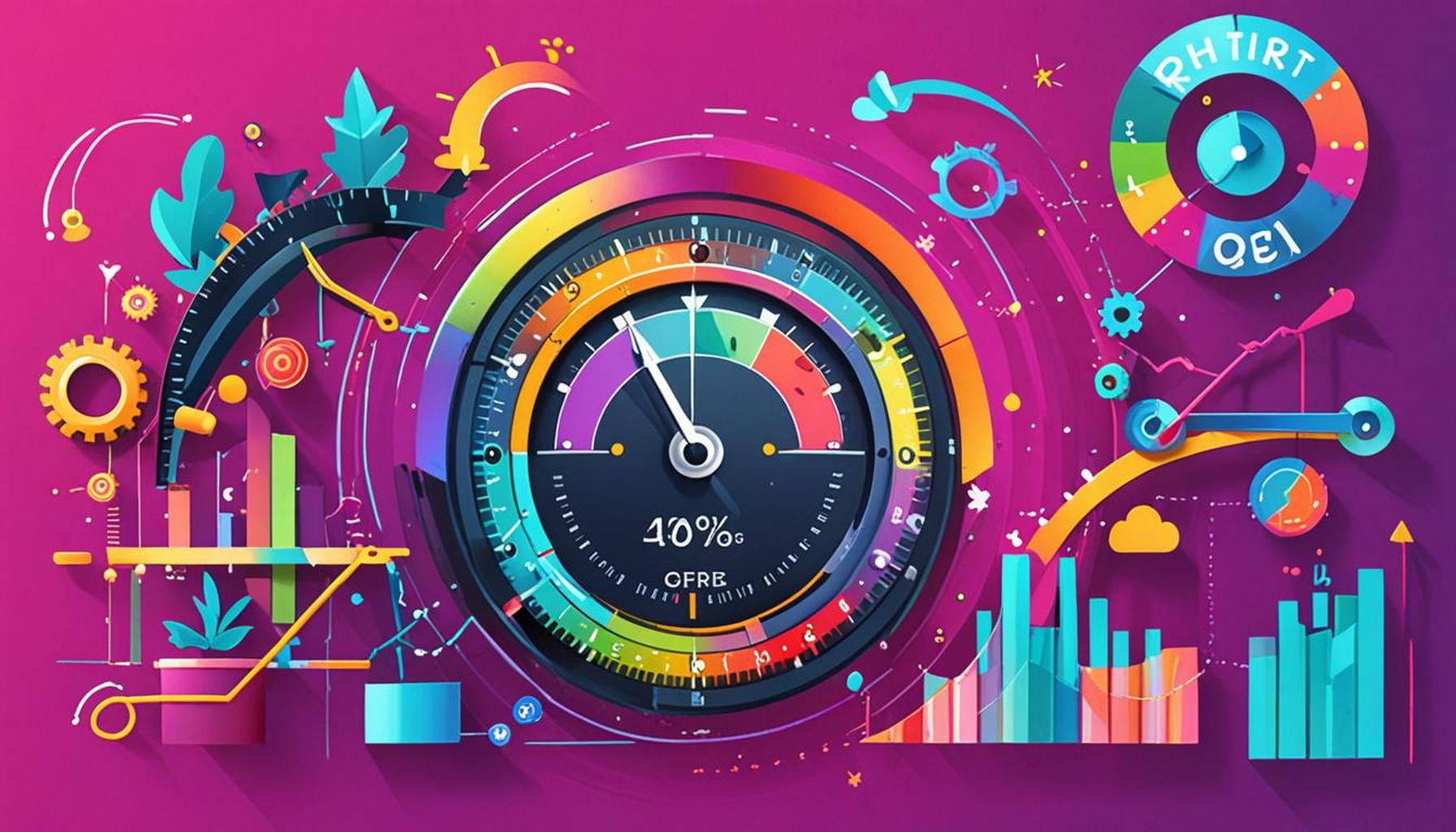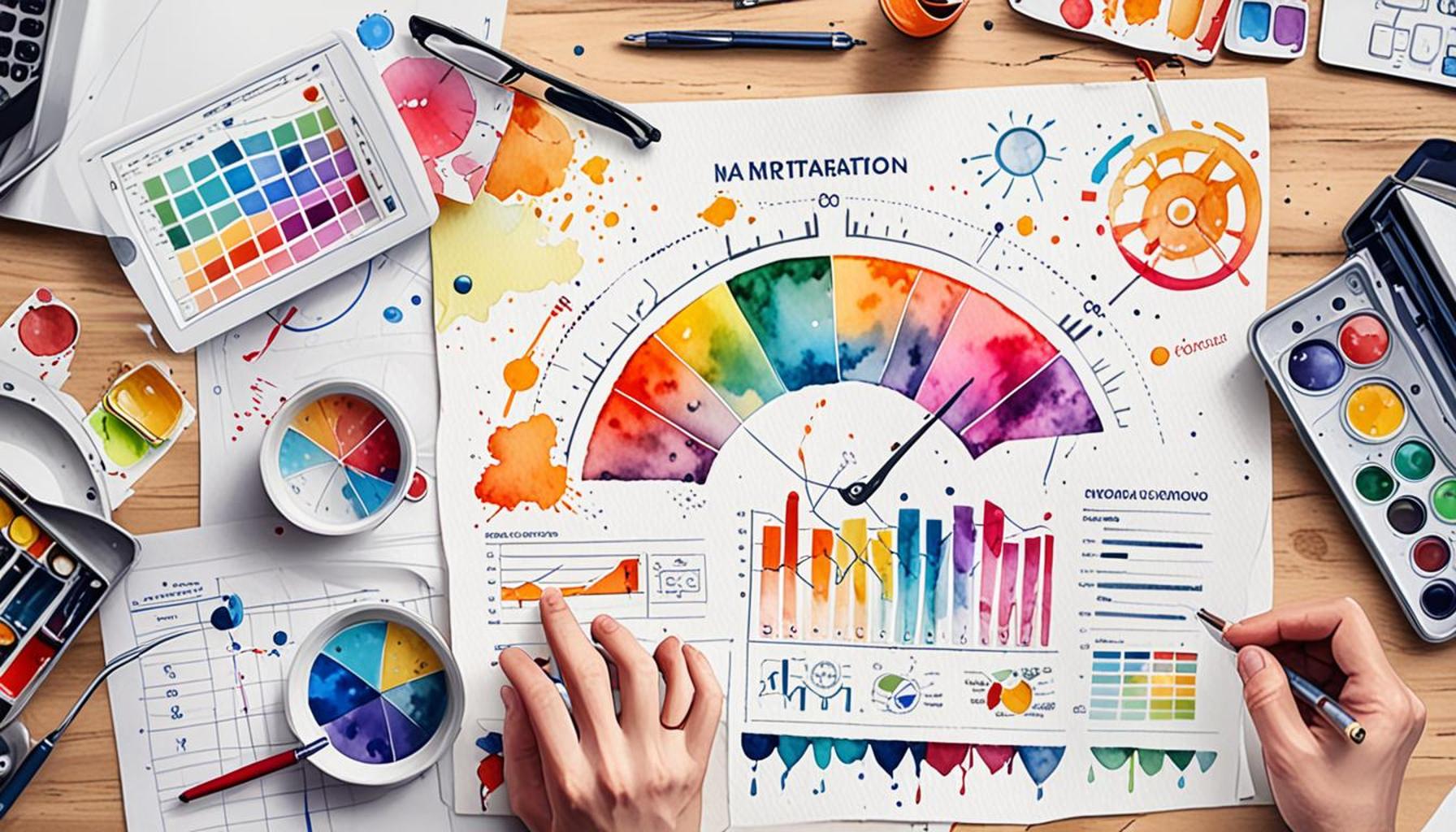Integrating Artificial Intelligence in Marketing Automation: The Future of Personalized Campaigns

Understanding the Impact of AI in Marketing
As businesses strive to deliver more personalized experiences, integrating artificial intelligence (AI) into marketing automation systems is rapidly becoming the game-changer. The ability for AI to analyze vast amounts of data quickly and accurately revolutionizes how companies engage with their customers. This technological innovation fosters an environment where marketing campaigns can adapt and evolve based on real-time insights.
Imagine a marketing landscape where campaigns are tailored to individual preferences, behavior, and purchase history. This is not just a fantasy; it’s a reality being propelled by advanced AI technologies. Consumers today expect brands to understand their unique needs and deliver relevant content. Here are some key benefits provided by AI-enhanced marketing:
- Enhanced Targeting: By utilizing data analytics, businesses can identify and engage the right audience segments. For instance, AI algorithms can analyze web traffic and social media interactions to determine potential customers most likely to convert, allowing for highly focused advertising campaigns.
- Dynamic Content Creation: AI tools can generate personalized content, such as email marketing messages and website banners, that resonate with each specific consumer based on their past interactions and preferences. For example, Netflix uses AI to suggest personalized viewing options based on past viewing history, enhancing user experience and engagement.
- Predictive Analysis: Machine learning algorithms enable marketers to anticipate customer needs and behaviors. By analyzing previous purchase patterns and engagement metrics, companies can not only forecast sales trends but also strategically plan inventory and tailor promotions to meet consumer demand.
Current players in the market, such as HubSpot and Salesforce, are already leveraging AI to refine their marketing strategies. This integration leads to:
- Increased conversion rates from targeted campaigns and more relevant content.
- Improved customer retention as personalized experiences foster stronger brand loyalty.
- Enhanced overall ROI through more efficient allocation of marketing resources and budget, ensuring higher profitability.
As we stand on the brink of this technological wave, understanding its implications is crucial for marketers. The convergence of AI and marketing automation promises not just to streamline processes but to redefine the way brands connect with their customers.
Marketers can expect to harness the power of AI for more effective and personalized marketing campaigns. This approach not only addresses the immediate needs of consumers but also positions brands as forward-thinking leaders in their industry, paving the way for innovative marketing strategies that truly resonate in a crowded marketplace.
The future is not just about automation but about an intelligent understanding of consumer insights, making AI an indispensable tool in the modern marketing toolkit. As businesses begin to adopt these strategies, those who leverage AI effectively will likely outpace competitors, capturing the attention and loyalty of consumers who crave personalized experiences.
ADDITIONAL INSIGHTS: Expand your understanding here
The Transformation of Marketing Through AI Integration
The integration of artificial intelligence into marketing automation is not just reshaping how brands connect with their audience; it is transforming the very essence of marketing strategy. A key aspect of this transformation is the use of AI to process and analyze consumer data at an unprecedented scale, allowing marketers to move from generic outreach to deeply personalized campaigns. In this new era, brands can create tailored experiences that directly resonate with individual customer needs and preferences.
To fully grasp the implications of AI in marketing, one must recognize the vital role that consumer data plays. Every interaction—whether it be a click on a link, a social media post, or a completed purchase—produces valuable insights about consumer behavior. By harnessing big data analytics, AI systems can sift through this information to extract actionable insights. Businesses can then leverage this information to refine their messaging, innovate their product offerings, and enhance customer experiences across various channels.
As consumer expectations continue to evolve, the demand for hyper-personalization in marketing grows stronger. Here are several key areas where AI is making significant inroads:
- Customer Segmentation: AI enhances traditional segmentation methods by analyzing patterns across multiple data points. This allows marketers to create micro-segments based on meticulous factors such as purchasing behavior, interests, and engagement levels, leading to more effective targeting.
- Real-Time Personalization: AI algorithms enable dynamic adjustments to marketing messages and offers in real-time. For instance, an e-commerce site might change product recommendations based on a user’s browsing history or previously abandoned carts, increasing the likelihood of conversion.
- Automated Customer Interactions: AI-driven chatbots and virtual assistants have emerged as invaluable tools, providing instant support and guidance. These tools can operate around the clock, ensuring consumers receive personalized assistance whenever they need it, improving customer satisfaction and engagement.
The business landscape is witnessing companies that deploy AI tools experiencing quantifiable benefits. A report from McKinsey revealed that organizations effectively utilizing AI in marketing have seen a potential revenue increase of 10–20%, emphasizing the importance of adopting these technologies. Furthermore, businesses report enhanced efficiency, as AI automates repetitive tasks and streamlines marketing efforts, allowing professionals to focus on strategic initiatives.
Marketers can no longer rely on intuition alone; they must become adept at leveraging AI to analyze data patterns and guide decision-making. The ability to anticipate customer needs based on AI insights not only meets immediate demands but establishes a long-term relationship with the consumer. As AI capabilities continue to evolve, brands that invest in this technology will be best positioned to drive customer loyalty and maximize their market impact.
Integrating Artificial Intelligence in Marketing Automation: The Future of Personalized Campaigns
As businesses strive for precision in their marketing efforts, artificial intelligence (AI) emerges as a game changer in enhancing personalization. With the ability to analyze vast amounts of data quickly, AI not only optimizes customer interactions but also delivers tailored content that resonates deeply with individual preferences. These are not just theoretical benefits; they have practical applications that are being realized by companies worldwide.
Through advanced algorithms, AI-driven insights can identify trends and predict consumer behavior, allowing marketers to adjust their campaigns in real time. Moreover, integrated AI systems can automate the segmentation of audiences, ensuring that each group receives communication that speaks directly to its interests and needs. This level of personalization fosters a stronger connection with the brand, ultimately leading to higher conversion rates.
Furthermore, the integration of AI enhances efficiency. It eliminates repetitive tasks such as email sorting and data entry, freeing up valuable time for marketing teams to focus on strategy and creativity. Utilizing AI tools also results in better resource allocation, where marketing budget can be directed towards channels that yield higher returns.
| Category 1 | Category 2 |
|---|---|
| Data-Driven Insights | AI analyzes consumer behavior through data, providing valuable insights to tailor marketing strategies. |
| Enhanced Audience Segmentation | Angular insights enable precise audience segmentation, allowing for highly relevant targeted campaigns. |
The future of marketing lies in personalization, and integrating AI into marketing automation is the key to unlocking it. Companies that harness the power of AI will not only stay ahead of the competition but also create richer, more engaging experiences for consumers. Each interaction not only communicates a brand message but also feels uniquely tailored, as consumers increasingly expect nothing less than personalization in their engagements. The evolution of marketing automation fueled by AI is indeed paving the way for a future filled with potential and promise.
SEE ALSO: Click here to read another article
Enhancing the Customer Journey with AI
As brands delve deeper into the integration of artificial intelligence within their marketing strategies, they uncover the immense potential of AI to enhance the entire customer journey. This evolution is not merely about broadcasting more messages; it’s about delivering the right message, to the right person, at the right time. AI technologies, through advanced analytics and machine learning, are equipping marketers with tools that provide clarity on customer pathways, directly influencing how campaigns are developed and deployed.
One of the pivotal areas of focus is predictive analytics. AI can analyze historical data to forecast future behaviors and trends, allowing companies to proactively address customer needs. For example, retailers can utilize AI to identify signals that suggest a customer is likely to consider a purchase. By sending tailored promotions or recommendations just before a purchasing decision is made, brands can significantly increase their conversion rates. According to research from Forrester, predictive analytics can enhance sales growth by as much as 15% when properly employed, showcasing its critical role in modern marketing.
The journey of personalization does not stop at awareness and consideration; it extends throughout the entire customer lifecycle. AI-driven tools can continually learn from new data, adapting campaigns as customers engage. This capability is especially vital in the context of omni-channel marketing, where a customer’s experience seamlessly transitions across various platforms—be it social media, email, or on-site interactions. With AI-powered analytics, brands can track customer movements across these platforms and curate content that reflects previous interactions and preferences, creating a cohesive and immersive experience.
Furthermore, AI supports dynamic content creation, where marketing messages are not only personalized but also generated in real-time based on user behavior. Solutions like Adobe Experience Cloud equip marketers with the ability to tailor digital content to specific audience segments as they engage. This means that when customers visit a webpage, they can see images, promotions, or recommendations customized to their tastes and shopping history, making each visit uniquely personal.
- Behavioral Targeting: By employing machine learning algorithms, brands can identify behavioral tendencies that reveal a customer’s likelihood to respond positively to certain messages, optimizing ad spending and improving return on investment (ROI).
- Fraud Detection: AI enhances the security aspect of marketing automation tools by identifying potentially fraudulent transactions in real-time, providing marketers with the confidence that their campaigns reach genuine prospects.
- Voice Search Optimization: The rise of voice-activated devices calls for adaptive strategies, and AI plays a crucial role in optimizing SEO tactics for voice search, making personalized recommendations based on conversational queries.
As these AI technologies proliferate within marketing automation systems, their applications become increasingly sophisticated. Brands are starting to understand that AI is not just a component of marketing; it is becoming a central axis around which marketing strategies pivot. The ability to harness AI effectively requires a shift in marketing mindsets—companies must view AI as a partner that amplifies human efforts. In the United States, the trend indicates that the greater the investment in AI tools, the more significant the step towards comprehensive personalization and consumer engagement. In fact, a survey by Salesforce highlighted that 70% of customers expect brands to understand their needs and expectations, underscoring the urgency for companies to integrate AI effectively.
As the marketing landscape continues to evolve, those who strategically blend artificial intelligence into their marketing automation processes will set themselves apart from competitors, forging deeper connections with their audience while optimizing their campaign effectiveness for years to come.
RECOMMENDED: Check out this similar article
Looking Ahead: The Transformative Impact of AI in Marketing Automation
As we stand on the brink of a new era in marketing, the integration of artificial intelligence into marketing automation is poised to redefine how brands connect with consumers. The insights gleaned from predictive analytics, coupled with the ability to adapt content in real time, ensure that businesses can tailor their campaigns to meet the evolving expectations of their audience. With a growing emphasis on personalized communications, AI empowers marketers to not only anticipate customer needs but also to create deeply resonant and engaging experiences.
The data speaks volumes; companies leveraging AI technologies report substantial increases in conversion rates and overall customer satisfaction. As the landscape becomes more competitive, organizations that harness these innovative tools will not only enhance their operational efficiency but also forge lasting relationships with customers. The challenge moving forward lies in continually refining AI-driven strategies, balancing automation with the human touch that is crucial for brand loyalty.
Additionally, as voice search optimization and other emerging technologies gain traction, the need for agile marketing strategies will become ever more critical. Brands must not only adopt these technologies but also embrace a culture of adaptability, ensuring they are agile enough to respond to shifting market dynamics and consumer preferences. In this rapidly changing environment, the organizations that prioritize AI integration into their marketing automation will be the ones to thrive.
In conclusion, the future of personalized marketing campaigns lies firmly in the hands of those willing to leverage the full potential of artificial intelligence. By doing so, brands will not just meet expectations but exceed them, crafting unparalleled customer journeys that resonate on a personal level.


